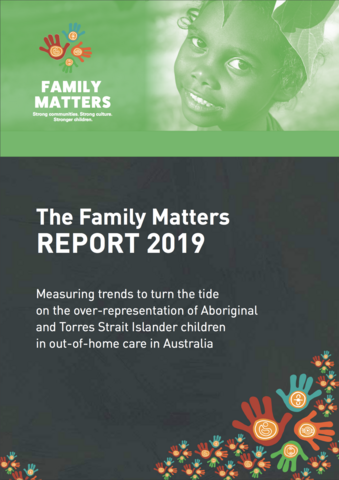Family Matters – Strong communities. Strong culture. Stronger children. is Australia’s national campaign to ensure Aboriginal and Torres Strait Islander children and young people grow up safe and cared for in family, community and culture. Family Matters aims to eliminate the over-representation of Aboriginal and Torres Strait Islander children in out-of-home care within a generation, by 2040.
The Family Matters reports set out what governments are doing to turn the tide on over-representation and the outcomes for children and their families. The reports contribute to efforts to change the story by explaining the extent of the problem and reporting on progress towards implementing evidence-informed solutions.
This year, Family Matters reports limited progress to redress over-representation and the drivers of child protection intervention. While some promising policies and initiatives have been introduced, government efforts continue to be broadly piecemeal and ineffective in responding to the needs of Aboriginal and Torres Strait Islander children, families and communities. Currently, there are 20,421 Aboriginal and Torres Strait Islander children in out-of-home care, making them 37.3% of the total out-of-home care population. The rate of Aboriginal and Torres Strait Islander children in out-of-home care is 10.2 times that of other children, and disproportionate representation continues to grow. As detailed in this report, if the tide is not turned, we project the population of Aboriginal and Torres Strait Islander children living in out-of-home care will more than double in the next 10 years, and the level of over-representation will also increase. Growth in the Aboriginal and Torres Strait Islander out-of-home care population is higher than expected in previous years, and as a result the trajectory over the next 10 years is worse than was reported in last year’s Family Matters report.
Government and community agree there is a problem. The impacts of colonisation, past and present discriminatory policies and practices, and persistent social inequity, coupled with under-investment in Aboriginal and Torres Strait Islander community-led and controlled solutions, have created a legacy of disproportionate child protection intervention in our communities across Australia. This report reveals that without substantial and coordinated responses that embed the four building blocks of the Family Matters campaign, progress towards achieving the campaign goal will continue to be limited.

